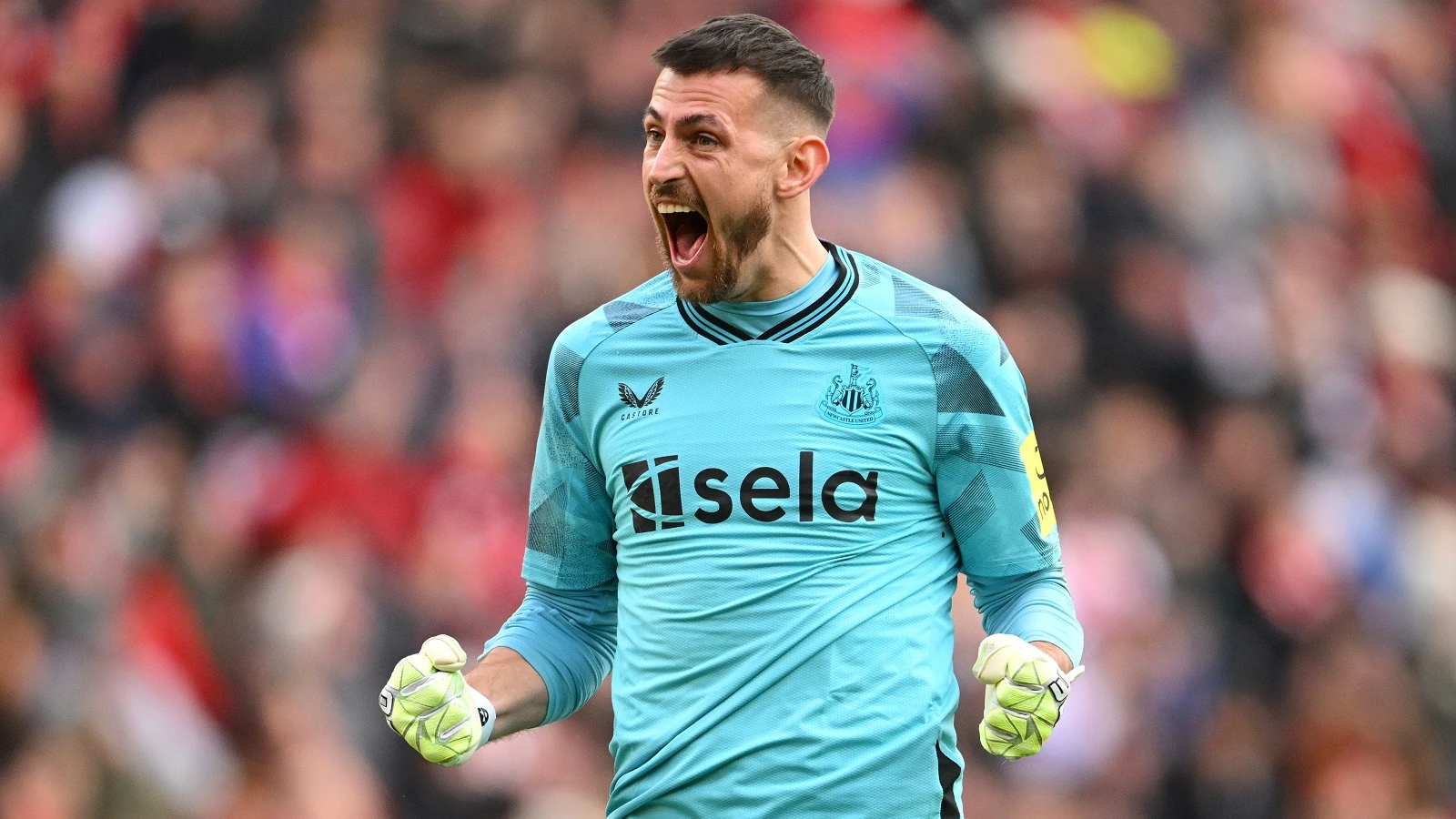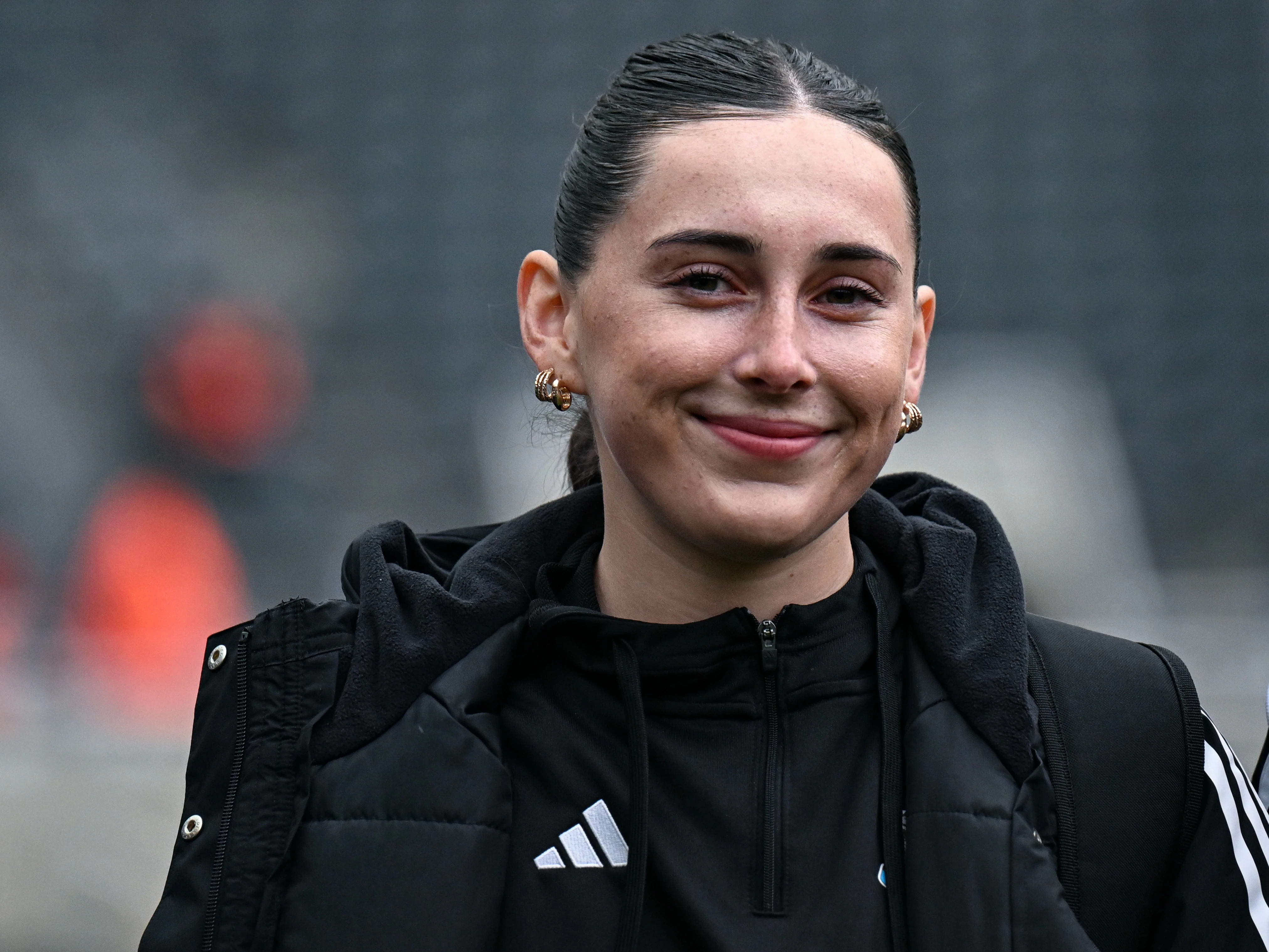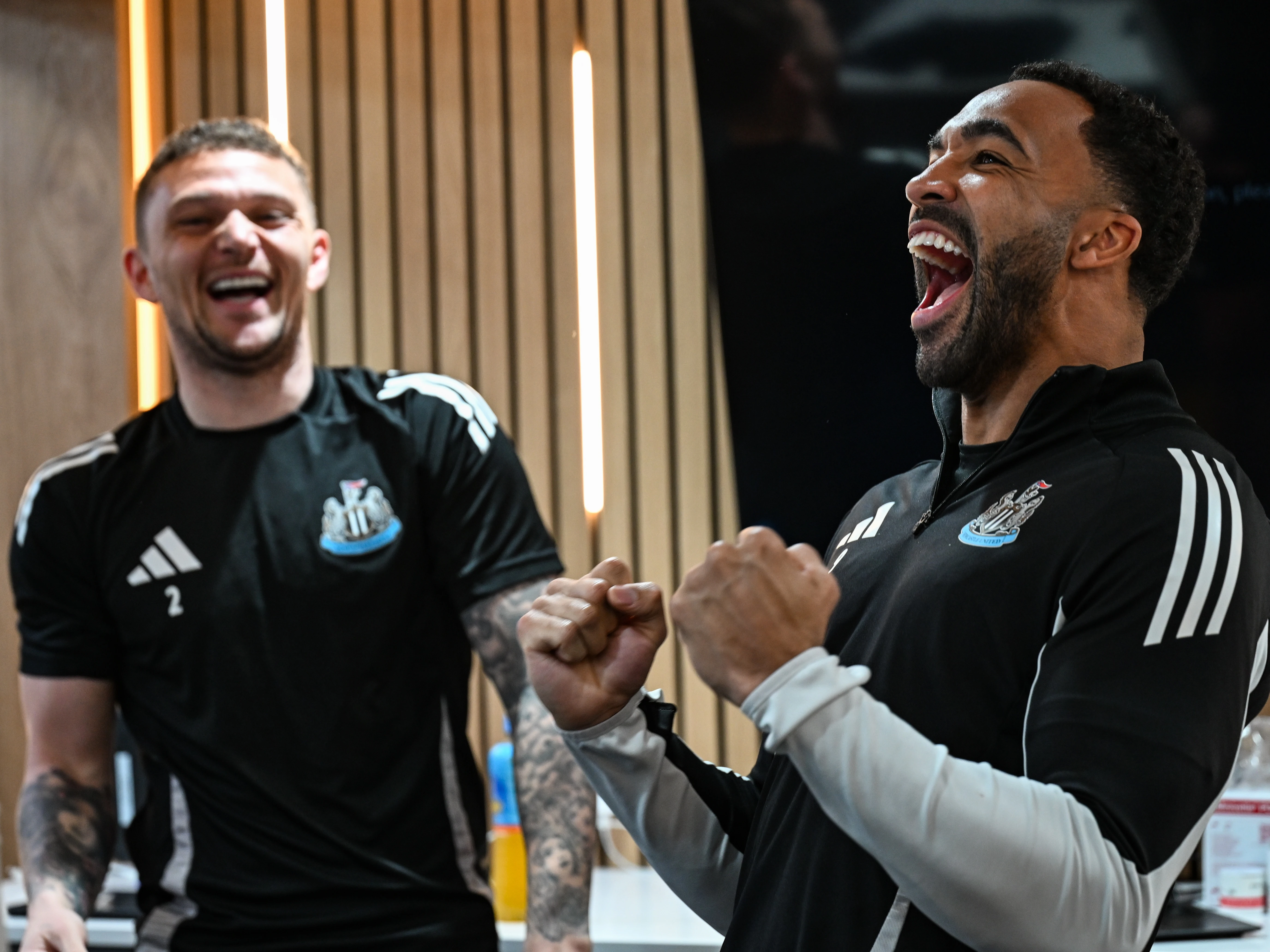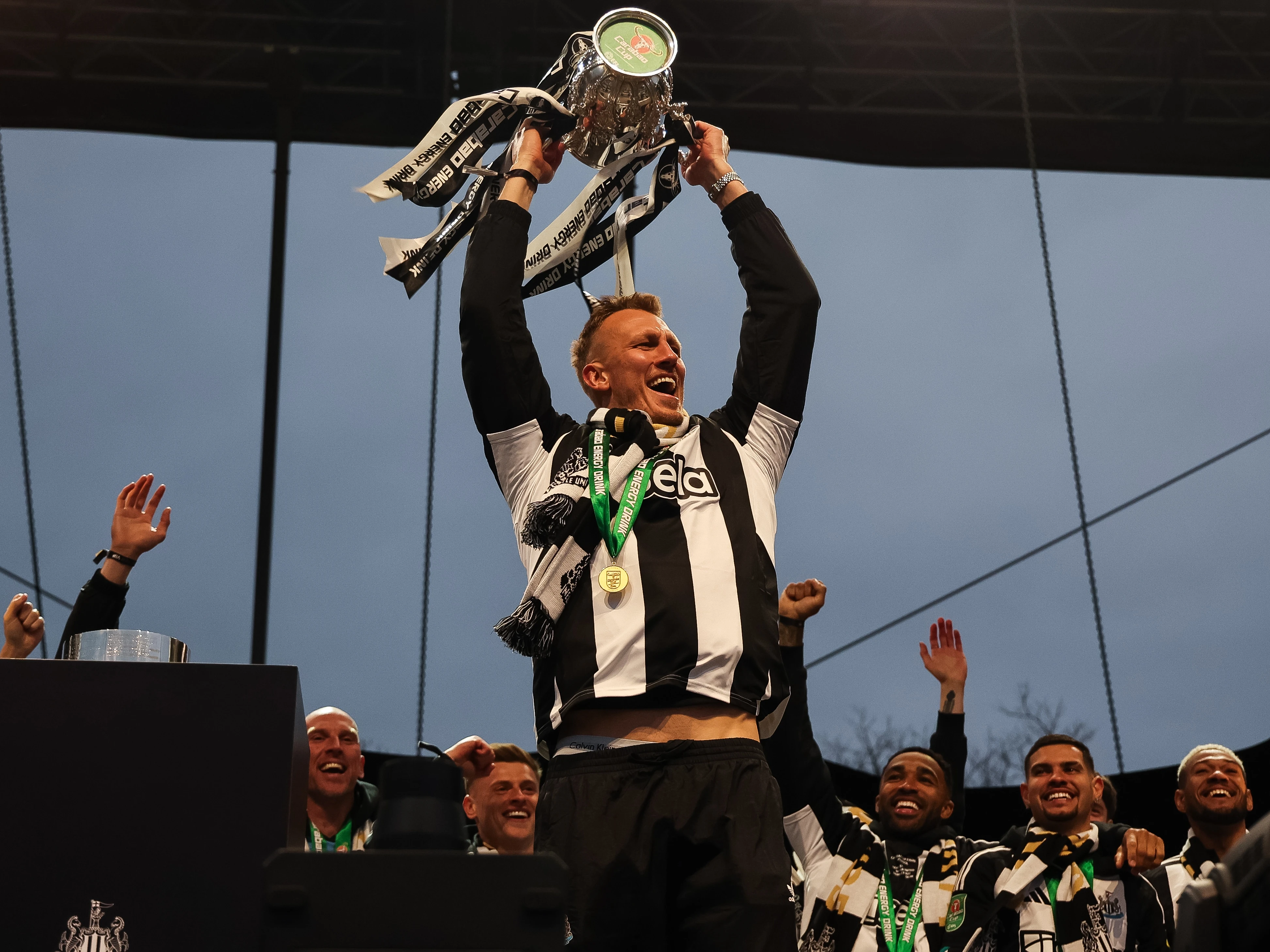"But it is huge for me. It's huge. When I signed, I didn't expect to play that many games. I didn't know the position I would be in when I was coming here. To achieve that number… I think I'm the second-highest Slovakian to have a number like this after (Martin) Škrtel, and then there's a big gap.
"I'm so proud of that - I'm so proud of that, I’m not going to lie. Not that many Slovakian players have played in the Premier League. Ľubo Šatka was here, an academy player, but he didn't play in the league for the first team. I'm so proud."
Dúbravka's appearance record places him ahead of all of his goalkeeping contemporaries during his six years at St. James' Park. It is indicative of some staying power, especially considering how overworked it seemed like he was as the Magpies trudged through campaign after campaign prior to Eddie Howe's arrival in 2021. "I came to England when I was 28 - quite late - and it's just like a click," he snaps his fingers. "All of a sudden, I have 150 appearances for a club like this. It's massive."
He is 35 now, a 42-cap Slovakia international and one of the more seasoned stoppers in the top flight; not many of the division's current goalkeepers have played more Premier League games than him. There is a toll that comes with that. Sitting alone in an empty changing room at the club's training centre in Benton, with many of his teammates having since left for treatment or home, he nods.
"Well, you have to take care of your body a bit more. I think you have to pay more attention to how your body reacts after the matches, after training. You have to pay more attention, spend much more time with the physios," he laughs. "But that's part of the game. Injuries come along. I'm just about enjoying every moment, because it's not every day you get to play for a club like this."
Much is made of the Magpies' commitment to aggressive, offensive football, of intensity being their identity under Howe. It is obvious to the eye what that entails for outfield players. What kind of demands that ideology places on goalkeepers is probably less clear. "If you see the type of football we are playing, you want to be part of it, first of all," he begins. "But you have adjust everything. You have to adjust your positioning. You have to be front-foot. You need to be there for your teammates, because they need you there.
"The way we play, intensity is our identity, and you can tell, especially against West Ham, for example. The game was mentally so difficult - physically for the boys, but mentally more for me, and physically more for my teammates. But I think in that game, we showed everything. We showed character, attitude, fighting spirit. This is us. Even when things are not going well for us, we'll fight until the last moment.
"Look at the dressing room. Every player here has that quality and mindset. They're hungry, they want to achieve something at this club. The manager came with a clear identity and philosophy, what he wants to do and what he actually demands from us, so every player is on the same page. But the togetherness we have in the dressing room is amazing. It's not always like this, and that's a massive credit to the manager and his staff that he created this kind of nice environment to be in."
That comeback win over West Ham two weeks ago, sealed by Harvey Barnes' late brace to make it 4-3, came in a game in which United found themselves 3-1 down. The end-of-season run-in looked like a slog from that vantage point. Now, with two wins and a draw preceding this Saturday's visit of Spurs, things look more hopeful and European football is again well within Newcastle's grasp. "After the fourth goal, when we scored, I can't remember hearing that much noise," he says.
In the bleaker moments of that ridiculous game against the Hammers, did Dúbravka sense hope? "Yes. Even when we conceded the third goal. The boys… it shows the quality of the players we have. They came on from the bench and they made a massive impact. From that moment, you feel like, 'OK, we're going to go for it - we have nothing to lose now, and we're going to turn it round and we're going to win this match'. That's what I felt from about 50 minutes, 55 minutes. Everything changed after that moment. It was unbelievable to turn it round, an entertaining game for the fans.
"But we did it. It was amazing to see that mental aspect, that strength and character. That's what it was about."
This has not been the most straightforward of seasons for Dúbravka. He didn't play in the league until December, when Nick Pope's shoulder injury saw him called into action. That swift shift from watching to competing is a sharp one, but par for the course for any goalkeeper who ends up providing backup. It never seems like a simple adjustment to make. He shakes his head.
"It's not easy. Because everything is different - from your point of view, from everyone's point for view. All of a sudden, as a goalkeeper you're coming on the pitch and you have to be ready from the moment you are there," he explains.
"I came on when Nick got injured for the last ten minutes against Manchester United, and straight after two minutes I conceded a goal, which was offside - and I knew it was offside. But it shows you that you have no time. You have no time to think, 'OK, you have time for this' - no. You have to be ready from the moment you step on the pitch. After that, I was just trying to enjoy every minute because I'd been waiting so long for a moment like this. You have to be professional, you have to carry on, because obviously I didn't play for a couple of months on a regular basis. So enjoy every moment.
"The first two games… I didn't know what to actually think about that one. We conceded three goals against Everton then four goals against Spurs. So when you concede that many goals after a long time without playing, you kind of feel like, 'come on'. But then I realised, like, 'OK, let's go – just do your thing, do what you know the best, you know what to do'. And I think in a couple of games, we've shown that we are still in a position where you can achieve nice things.
"It's not easy, to wait so long for a chance like this, but that's how it is – that's football. Injuries come along, and you have to be ready for it."
Perhaps, then, it is in situations like the Magpies' over the last four of five months where Dúbravka's experience proves most useful. It sits alongside his natural air of calm and it may be why, across his time on Tyneside, he has been valued and trusted by all of his managers.
"Experience helps you, because you know that you have to do to be ready for the matches," he adds. "But you can imagine a few things, and it's different in the real time on the pitch. You have to study - you have to study a lot, and the goalkeeping coaches help me a lot with the analysis, to go through the moments and to analyse what we have to do better, what we should be focusing on. It's a long-term project, to be fair, even for a keeper.
"Once you think you know everything, you're done. You have to still analyse, try to improve in all the aspects - mental, physical - but at the same time, you have to be mentally and physically fresh. It comes with experience - by not doing too much, and not doing nothing."




